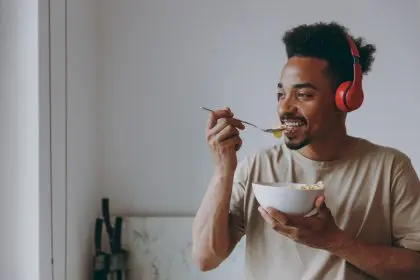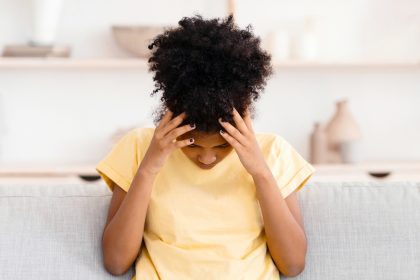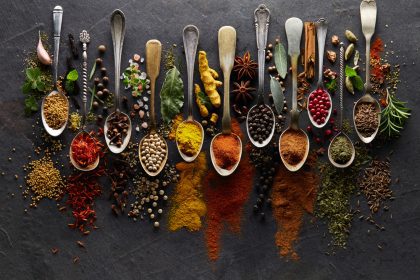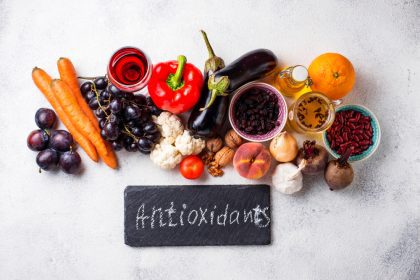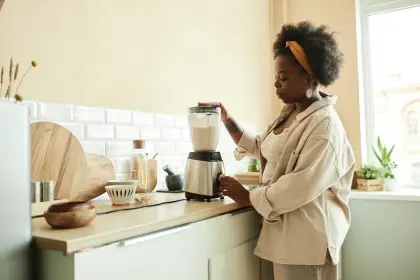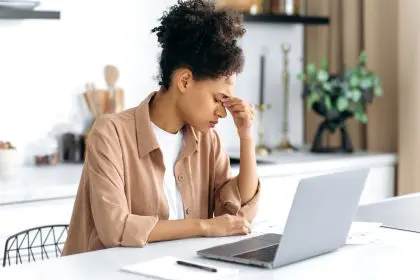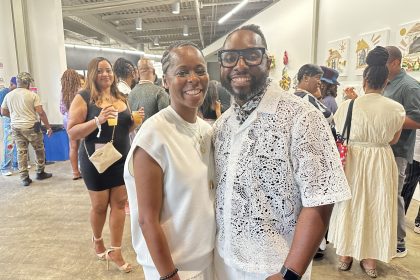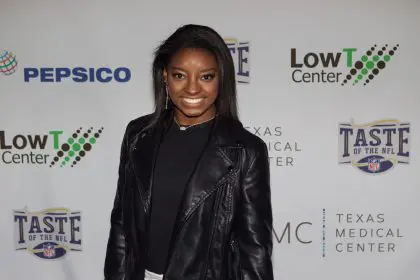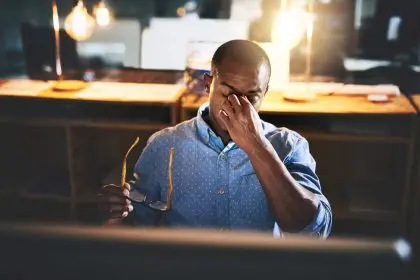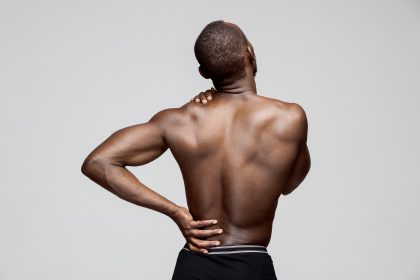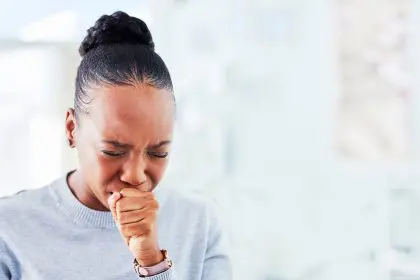In the vibrant backdrop of Detroit’s 1980s and ’90s, Shawntà Hooks discovered an unexpected inheritance—her father’s meditation practice, which she later transformed into a powerful movement. An award-winning leadership expert and certified mindfulness facilitator, Hooks has spent over two decades empowering organizations worldwide, combining ancient wisdom with modern leadership challenges. From her corporate vice presidency to founding a 500-member meditation community during COVID-19, her journey blends Detroit’s resilient spirit with mindfulness as a tool for innovation and growth. As a board member of the Institute of Organizational Mindfulness, Hooks bridges conceptual ideas with practical leadership tools. Join us as we dive into her remarkable career and explore what she will bring to the Aware Human Summit on January 25th at the Culture Lab in ATL.
Talk about what got you to this point. What has your life journey been like getting you to where you are right now?
Yeah, so obviously grew up in Detroit, Michigan, from Detroit. And I grew—I say that because I grew up in the eighties and nineties in Detroit, where no one was talking about meditation and mindfulness. It was not something that I grew up with from a practitioner perspective. However, my father was actually a meditator, because early in his life he was a professional kickboxer, and so he picked up meditation as a lifestyle habit.
But again, it wasn’t something he taught his children. It was something he did by example, and unfortunately he got sick. In his life he had multiple sclerosis, and he was in a pretty bad car accident that left him paraplegic and he eventually passed away in 2014.
But it was shortly after he died that I started to really remember his example of meditation. Because my life it got really stressful, being a new mom being a vice president of actually automation back in like 2017, 2018, and just experiencing a lot of challenges in life, even grieving his loss and meditation kept popping up as a potential solution to dealing with the stress and anxiety of life, and one time I tried it in like 2018, I said, I’m going to try meditation. I think it was probably on my vision board for the year, and I tried it and said I couldn’t do it. I quit. Shortly after that one practice, because I said, my mind won’t stop racing. I can’t do this.
But eventually I found my way back to the pillow, as they say, and this time I’ve really decided to make it a habit. And what I learned is that mindfulness isn’t is not really silencing the mind. It’s noticing where the mind is. And so changing that perspective helped me develop it as a habit, and throughout making it a habit, I started to learn the science behind it, which is what was missing before just hearing about it.
Anecdotally wasn’t enough for me as a MBA and CPA Accountant. I need the data and the information in order for me to try something new. And now that I was understanding the science behind really resilience, I was able to connect those dots to my dad’s story and see how he was always so resilient in his life through meditation because of the way it was impacting his brain. And so, after 6 months of starting and trying and doing it every day. Eventually, after 6 months, it became part of my lifestyle.
And everything just changed like literally 2020. I started doing it regularly in 2019, 2020, shortly before Covid, I was doing much better at my job. I was making connections with people that I was thinking were just completely broken bridges. But what happened is, I was starting to take things less personal. I was getting out of my emotions, learning how to process them through stillness, through meditation, learning to observe versus react, understanding that everything doesn’t deserve a reaction.
And then over time, I started to just talk about it at work, and that led to me starting a community during Covid, to help my colleagues deal with the stress and anxiety of Covid and the disconnection that was happening, and that small community grew to over 500 employees after about a year and a half.
And that launched my speaking career, having this platform where I got a chance to be in front of folks up to 3 times a month, just really advocating for meditation at work and telling my story, and that launched my speaking career. It launched my ability to create workshops and experiences in this space, and officially, a little over a year ago I resigned from my corporate job to do this work full time.
You mentioned getting out of your emotion. Why is it important to get out of your emotion?
Yeah. And I want to put a little nuance on that because emotions are really important. I like to say that emotions are clues, and we want to, we want to pay attention to our emotions. But we don’t want to stay there forever. We need to allow our emotions to process like the clouds in the sky. So looking at your background is very clear, right there. There’s no—and I’m talking about the picture of your virtual background. There’s actually no clouds right now, but we know in life that sometimes those clouds come, and if you pay a close enough attention they eventually fade away.
And what meditation helps you do—and there’s so much science behind this—is give you a container to actually process those emotions so that they eventually pass like the clouds in the sky, not avoiding them, not hating them not, you know, disrespecting their role in our lives and the importance of their lives, but actually paying attention to them, allowing them to process naturally through practices like breath work, allowing the brain to settle.
And then, once you do that, you actually start to understand the clues. Understand that this emotion means that this scenario is not good for me, or this emotion means that I’m actually really excited about this new opportunity. And that’s why I have these physical butterflies in my stomach. I’m able to sit down and be still and actually notice what happens in my physical body, the feelings in my body when I am experiencing certain emotions.
So we, as adults, have to go back to those things that we actually now teach children about how to process emotions in a healthy way, not avoid them, not disregard them, but allow them to guide us to the decisions that you know, that will allow us to thrive.
What has changed in society’s openness to mindfulness and mental health compared to 20 years ago?
I think a couple of things have changed, I think with because of technology, right? And because of not just the Internet. But now we have Chat GPT, we have Youtube. We have all of these digital tools that help us understand help us gain understanding. And that’s what we really, you know, most some of us really need to just understand right. How do I understand how this fits into my life? For example, there was a time where we didn’t drink water every day, like no one understood the benefit of having X amount of ounces of water in terms of hydration, and how that impacts our physical body.
But now it’s a part of our everyday lives, and I think the same is with meditation. There was a time, say 20 years ago, really, just before Covid, I think Covid is one of the most recent events in society that really opened the door for us to embrace a new tool, not new because it’s been around for thousands of years, but embrace a new tool socially that can help us process these things in our lives, but that coupled with technology, you have the understanding.
And then you have role models. We have so many different role models. Now that our meditators, it used to the face of meditation, used to be people that are very spiritual, people that come from a certain faith.
So those that are maybe people of color. Black people, people that are not from Eastern traditions or have different faith systems. They may not have felt seen in the space of meditation, but now that again, now that we have tools like Youtube and video technology to show us that meditation is actually something that all cultures have really embraced, maybe using different language since the beginning of time.
People are now softening their resistance and their skepticism behind it to actually embrace it. And the last thing I’ll say is, there’s just been a ton of data like there are literally thousands of studies that have been done even within like the last 10 years, to really show how meditation impacts the physical body and impacts stress and anxiety. And now that we have the data to actually match what spiritual wisdom has told us for thousands of years, I think it opens the door for people to embrace it in a much more, a much more impactful way.
Describe what your mental health support system looks like. Who’s around for you? Who’s holding you accountable?
Yeah, I love that question. And the first thing I want to say in terms of it being in a silo, the beautiful thing about the way I practice meditation because I am first my support system. Right. I am the first version of my support system. If I can’t be there for myself, then no one else can either. And the thing with meditation, a lot of times people have this image that meditation has to be done in a special room with special tools, or maybe at a million dollar retreat in Bali somewhere. And that’s just not true. I always say mindfulness is more than breathwork. Mindfulness is paying attention to the present moment on purpose, without judgment.
So when you start to shift your perspective on what it is, it makes it a bit more easy to bring it into your everyday life. So mindfulness in and of itself is a big support system for me, just a space for me to close my eyes, shut out my outside environment, and notice where my thoughts are, and sometimes even evoke certain specific thoughts, projects that I’m working on, closing my eyes and visualizing my projects and visualizing my day.
It gives me the space to actually be successful in those endeavors, and then, in addition to that, when you start to practice mindfulness, you start to actually change the brain and the things and resources that you need become much more apparent.
So all of the people that you see every day that may, you may not have paid too much attention to, now you suddenly remember, ‘Oh, that person actually said, they’re an expert at this’ or that person said that they’re good at that. And you start to actually reach out and cultivate community that’s in alignment with where you’re actually going in life. So I have a therapist that is not only a traditional therapist, but she’s also trained in spiritual and intuitive wisdom, and she pairs the two together to keep me—to help me stay in a space of grounded spirituality is the way I like to put it.
And I have a lot of people like that that kind of dance in these multiple worlds. And they helped me again think about my life in a very grounded way, but also honor the spiritual aspect of my life as well, because I think that—I know that our spiritual well-being is a very, very big part of holistic well-being. So between faith and traditional mental wellness practitioners and friends that are aligned to just really healthy lifestyle driven and lots of folks that are entrepreneurs.
Now, now that I’m on this entrepreneurial journey, having that community that can, you know, help me when I am, you know, sort of doubting myself, and I get stuck, get stuck in my thoughts and head. Have those people on hand that can help pull me out in a mindful and connected way. Those are also big big parts of my support system.”
What does it mean to you to be aware?
I love that word aware. Awareness is again being connected to what’s happening right now. And if we were to do a quick mindfulness practice, I would, you know, instruct whoever is listening to this, to actually just take a moment to listen to what’s happening in the room right now. You may hear white noise. You may hear the humming of certain you know machines in your room like I’m in in near my kitchen, so I hear the refrigerator. It’s bringing your awareness to just what’s happening right now.
And the beauty of it, or rather the space where you can actually gain so much you don’t even you’re not even aware of until you do it. Aware of how much you gain in this is when you’re aware, without judgment. Because we can be aware of everything right. There could be a dog barking right now that could distract me. And my first thought is, I’m aware of this dog barking. But now I want to be angry that this disruption is happening.
I might want to curse the dog. I might want to call the police on the owner. I’m acting and reacting with judgment. So to me, the power is when you’re aware, when you can at least tap into moments of awareness without judgment meaning. You just notice things as they are, and as the saying goes, it becomes it is what it is.
Why is eliminating judgment so important?
Because oftentimes we’re judging things that don’t require our judgment and the judgment it leads to stress and anxiety. Judgment serves a purpose. It’s a really really important part of our decision making process. It’s a really really important part of our safety to be able to make quick decisions. But and just like with stress. But as with many things in life, we sometimes allow it to take the driver’s seat right? And and we allow judgment and stress and anxiety to take the driver’s seat.
Well, we really just want them to be like sort of supporting cast members of our life. We don’t want them driving the car. We want to use judgment in the right context. A lot of ancient wisdom says that all judgment is really a judgment of self.
So anytime that we, you know, get distracted. And we want to judge that distraction and maybe curse that distraction. It’s just a reflection of how we perceive distraction, and so, just like with the clouds in the sky, we have to be able to, at least at some point, get to a space of neutrality. The brain wants us to be there. Our future self wants us to be there, and we need to get there. Meditation is a tool that can help you get there.
What can we expect from you at the Aware Human Summit on January 25th?
Thank you so much for that compliment, and I appreciate that, because before I answer the question, because I am fairly quote unquote, new at meditation. It’s something that I picked up in my life, and I was not a believer. Prior to 2018, I was probably on the high end of skepticism, despite seeing my dad do it. And then I became a believer.
So we’re talking 6, 7 years of me actually becoming a believer in this space. And I have my own doubts. Right? You know, I’m competing against people that have that are neuroscientists and Buddhist monks and people that have been doing this for 20 plus years. But I believe that I’m a testimony, a really cool testimony of how effective it actually is like how I can, be able to process this in this short period of time and allow it to transform my life is an example of how it can affect everyone’s life.
And so, really, at the aware human summit, I’m going to be telling that story. I’m going to tell the story. Tell the longer version of my dad’s story, and how his resilience not only saved his life in many ways, but how it demonstrated that resilience is a skill that can absolutely be practiced with meditation.
And I’m going to share some of the neuroscience for those nerds out there that need some of the science. And then we’re going to actually practice in some very practical ways ways that I practice again. Being a Detroit girl, I love hip hop, especially J. Dilla Lo-fi style music.
My brother is a music producer, and so we’re going to practice to some music that you may not necessarily consider meditation music. But I’m going to show you how again, mindfulness is much more than breath work, and we can bring our culture as African Americans, or whatever culture you represent. You can bring your culture into this practice, so that you have a higher probability of actually making it a lifestyle habit. So I’m excited to share these different ways of expressing meditation at the summit. On the 25th.
Where can people find you?
Yes, you can visit my website, shawntahooks.com, and if you join my community. There’s some links there to join my community. You’ll get access to events where I’m facilitating these types of sessions on a regular basis.

